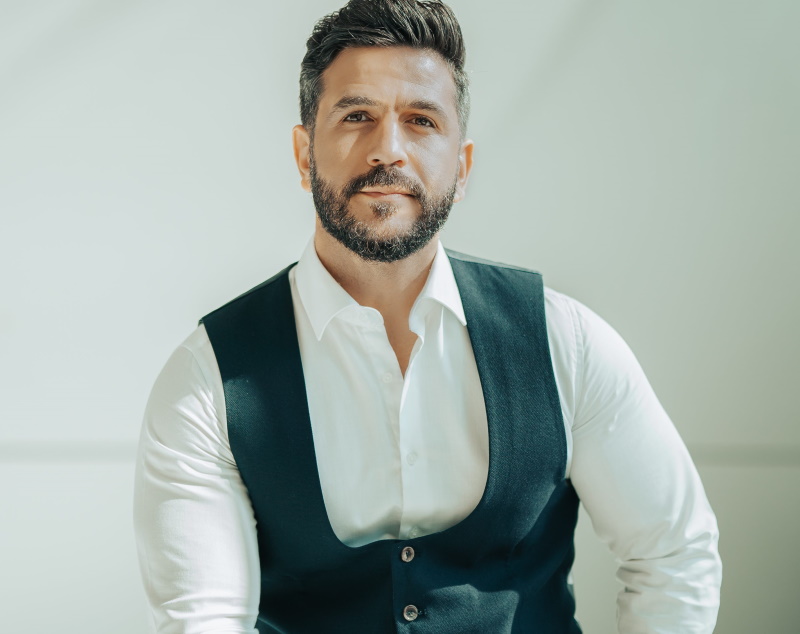
How tech-enabled policing and a whole-of-society approach are redefining UAE’s national security
Few things in the contemporary world are as dynamic as national security. The increasing digitalization, evolving economics, and complex geopolitics are underscoring the need for periodic re-visits to security policies, infrastructure, tools and practices. This necessity grew significantly following the pandemic outbreak as the “crises” that security disciplines respond to increased in scope. So, given the fluidity of the “threats”, how are security disciplines and agencies responding? On this National Day, as the UAE gears up for its “Next 50”, it is germane to bring strong perspectives on national security to the table.
Ali Ayoub, who was instrumental in organizing the renowned World Police Summit of Dubai Police in Dubai last year, touched upon how tech-enabled policing and a whole-of-society approach characterize the UAE’s competitiveness in national security. Ali’s first-hand experience is owed to his time in NAFFCO, Intersec, and Messe Frankfurt ME, among other companies in the event management and security industries. “There are a few key pillars — fire and rescue, policing, administrative security, and cybersecurity — under the national security umbrella. Today, foolproof national security requires the effective integration of related people, processes and technologies. Events such as the World Police Summit, as ideal avenues for R&D collaborations, knowledge flows and transnational partnerships, are consequential in that regard,” opined Ali.

Channelling his extensive industry experience, Ali is currently setting the stage for the Abu Dhabi edition of one of the most important national security events in the world. The event, scheduled to be held in 2024, is expected to draw security experts and regional stakeholders in droves. “The current national security imperative needs a good strategic direction, as well as a technological substructure. The growing sophistication of crimes calls for interdisciplinary and transnational exchange of intelligence and insights. They can aid capacity building and enhance readiness. If anything, it will help us avoid a bringing-a-knife-to-a-gunfight situation,” explained Ali.
Pursuing qualitative — not quantitative — policing
In a Middle East-centric industry survey(1), a resounding 67% of respondents said the role of policing will increase in the future, while 33% of them said it will remain the same. As the survey factored in the opinions of on-the-ground personnel, the findings are quite telling. It stands to reason that existing police forces need reinforcements. However, as per Ali, the required reinforcements are more qualitative than quantitative.
As often as not, technology adoption is associated with qualitative policing. The implemented solutions should increase operational efficiency in terms of decision-making and execution of crisis response. This tech-enabled policing needs strong emphasis on data security because the systems are susceptible to cyberattacks, which can compromise confidential and sensitive information of geopolitical importance. The resilience against disruptions, efficient communication tools, and state-of-the-art security barriers characterize qualitative policing. Thanks to its affinity toward innovation, the UAE leads security-related technology adoption, which was the driving factor behind Abu Dhabi’s top rank as the safest city in the world in Numbeo Safety Index(2).
A whole-of-society approach to national security
The cybersecurity imperative also applies across sectors, such as banking, NBFC, retail, and power plants, where digital transformation is underway at an accelerated rate. These sectors cannot operate in silos without providing a holistic view of security challenges. For example, oil and natural gas plants are prone to fire hazards and thus require smart IoT sensors that can help proactively address leakages, etc. Likewise, security postures in banking need round-the-clock monitoring, MFA, and zero-trust approaches to steer clear of attackers.
Under this scenario, close cooperation between the public and private sectors is paramount. It can lead to the standardization of best practices and reconciliation of business goals with national security, as per Ali. “Collaboration between all stakeholders in the country — private business, government institutions, and residents — is key to achieving sustainable and people-centric national security. Such a whole-of-society approach ensures that national security policies are harmonious with civil liberties. A unified society is the first line of defence,” asserted Ali.
In fact, Ali’s notions surrounding tech-enabled policing and a whole-of-society approach carry more weight in light of many landmark events in the Middle East: The Expo Dubai, the Jeddah debut of F1, and the Qatar FIFA World Cup. An oil depot in Jeddah was attacked by Houthi rebels days before the Formula 1 race to disrupt the event. There is a collective obligation to thwart such attempts in the future. “While countering external threats, national security policies must uphold the happiness and well-being of residents. National security should be predicated on the notion that no one is safe until everyone is safe. That will enable us to grow as a nation, and as a region,” Ali concluded.
https://www.worldpolicesummit.com/media/kximqdma/wps-2022-report-24-08-22.pdf
https://www.numbeo.com/crime/rankings.jsp?title=2020&displayColumn=1



























